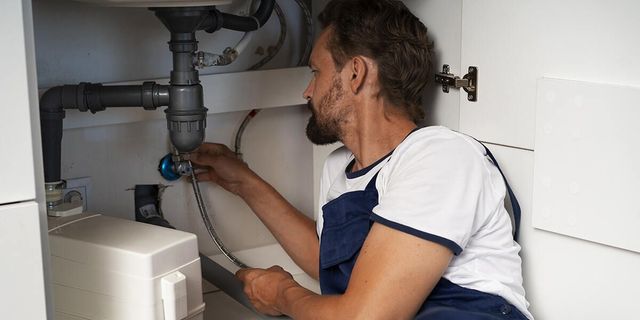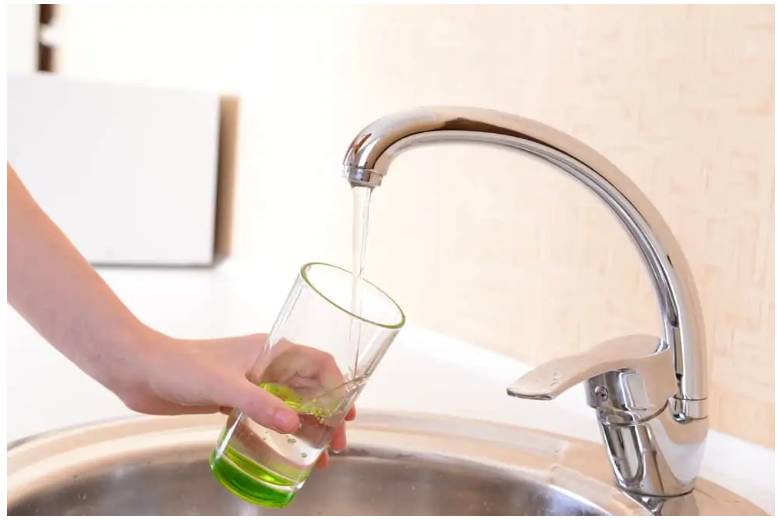Helpful Approaches for Addressing Low Water Pressure in Your Home
Helpful Approaches for Addressing Low Water Pressure in Your Home
Blog Article
Have you been trying to locate insight around 9 Reasons for Low Water Pressure in Your House?

Low water stress in your home can be an aggravating issue, influencing every little thing from bathing to cleaning meals. If you're experiencing weak water flow, there are several feasible reasons and options to check out. In this overview, we'll review typical reasons for low tide pressure and practical actions to attend to the concern effectively.
Introduction to Low Tide Stress
Low tide stress takes place when the circulation of water from your taps, showers, and other fixtures is weaker than usual. This can make daily jobs extra tough and less effective. Recognizing the root causes of low water stress is vital to discovering the right remedy.
Usual Sources Of Low Tide Pressure
Pipeline Obstructions
Over time, pipes can become blocked with natural resource, sediment, or debris, limiting the circulation of water. This is a typical issue in older homes with galvanized steel pipes.
Deterioration
Rust within pipes can lead to leaks and reduced water pressure. Rust accumulation can restrict water circulation, specifically in aging plumbing systems.
Faulty Pressure Regulatory Authorities
Pressure regulators are accountable for keeping regular water stress in your house. If they malfunction, it can result in low water stress or uneven circulation throughout the house.
Local Supply Of Water Issues
Often, the issue exists outside your home. Metropolitan supply of water problems, such as main line leakages or upkeep work, can temporarily minimize water pressure in your area.
Exactly How to Diagnose Low Water Pressure
Examining Taps and Components
Beginning by evaluating the water stress at various faucets and fixtures throughout your home. If the problem is separated to certain locations, it might suggest local issues.
Inspecting Pipes
Evaluate noticeable pipes for indications of leaks, rust, or blockages. Take note of any uncommon audios, such as knocking or rattling pipes, which can show concerns within the plumbing system.
Consulting with a Plumber
If you're incapable to pinpoint the reason for low tide stress, consider employing an expert plumber to conduct an extensive evaluation. They can identify underlying problems and suggest ideal services.
DIY Solutions to Fix Low Tide Pressure
Cleaning Aerators and Showerheads
Natural resources can build up in aerators and showerheads, decreasing water flow. Remove and clean up these elements frequently to improve water pressure.
Flushing Hot Water Heater
Sediment buildup in the hot water heater can limit circulation and decrease performance. Flushing the storage tank periodically assists get rid of sediment and preserve optimal performance.
Examining Pressure Regulator
Ensure that the stress regulator is working correctly. Adjusting or changing the regulatory authority can assist restore correct water pressure throughout your home.
Cleaning Clogs in Pipeline
For minor blockages, attempt utilizing a plumbing snake or chemical drain cleaner to clear obstructions in pipes. Beware when utilizing chemicals and adhere to safety guidelines.
When to Call a Specialist Plumber
If do it yourself efforts fall short to deal with the problem or if you presume considerable plumbing issues, it's ideal to seek assistance from an accredited plumber. They have the competence and devices to address complex issues securely and successfully.
Safety Nets to Preserve Water Pressure
Normal Maintenance
Arrange regular maintenance for your plumbing system to prevent issues such as deterioration, leaks, and obstructions. Attending to small issues early can assist prevent even more substantial repair work later.
Mounting a Stress Booster
Consider installing a stress booster pump to enhance water pressure in areas with constantly low flow. This can be specifically helpful for multi-story homes or properties with high-demand components.
Tracking Water Usage
Bear in mind water usage behaviors and stay clear of overtaxing the plumbing system. Basic modifications, such as incredible showers and washing lots, can help preserve appropriate water pressure.
Verdict
Handling low water pressure can be discouraging, but identifying the underlying causes and applying suitable solutions can bring back optimum flow throughout your home. Whether it's cleaning up aerators, evaluating pipes, or speaking with a plumber, taking proactive actions can ensure a constant supply of water for your everyday demands.
How to Fix Low Water Pressure In Your Home
Municipal Water Supply Issues
Scheduled maintenance, high demand, and water main breaks are all potential causes for low water pressure within a city or county’s water lines. While there’s not much you can do to personally fix a problem with your city or county’s water supply system, you can play a big role in documenting the issue and alerting those who can.
How to fix it:
Ask your neighbors if they are experiencing any issues with low water pressure. If multiple homes are affected, it’s likely related to the city’s water line.
Contact the local Water Authority to see if there is any maintenance taking place that might be affecting your supply. Also let them know of your specific issues. If other homeowners report the same issues, they’ll know that there could be a larger issue to look into.
Faulty Fixtures
A damaged or clogged shower head, faucet or appliance is the first thing we’d suggest checking, especially if low water pressure appears to be isolated to a specific area of your home.
How to fix it:
First, turn off the main water supply to your home.
Check the affected appliances for build-up or debris. In the case of a faucet, you can simply unscrew the aerator at the tip of the faucet. Showerheads should be fully detached from the water pipe.
While the appliances are detached, you may want to check the water supply to determine if the fixtures were in fact the issue.
To clean, soak the showerhead or aerator in vinegar and brush off any visible debris.
Reattach the fixtures and check the water pressure again. If it is still low, there is likely a deeper issue at hand, which can be determined by a professional plumber.
Pipe Obstructions
Mineral deposits, rust or other debris within water pipes can lead to blockages or corrosion over time.
How to fix it:
When you think of a clog, you probably think of a drain clog. While there are many DIY solutions to clearing a drain, clogs in a water pipe will almost always require the help of a professional plumber. A plumber will be able to locate the affected pipe and clean out any debris or mineral deposit buildup. In severe cases, the pipe may need to be replaced. Your plumber might also recommend a water softening system to remove the minerals from your home’s water supply that can contribute to pipe blockages over time.
Plumbing Leak
Undetected water line leaks can divert water away from your residential pipes, reducing the water pressure in your fixtures.
How to fix it:
Check your water meter by turning off all water sources and monitoring the meter for any movement, which could be a clear indicator of a potential leak.
Check all visible pipes for signs of leaking, including water stains, active dripping or damp spots around the pipe.
Inspect fixtures, including faucets and showerheads, for any drips.
Test the pressure but recording the pressure with the main water valve shut off. Leave off for a few hours and test again. A significant drop in pressure is a clear sign of a leak.
https://kiddcoplumbing.com/plumbing-blog/how-to-fix-low-water-pressure/

How to Fix Low Water Pressure In Your Home
Municipal Water Supply Issues
Scheduled maintenance, high demand, and water main breaks are all potential causes for low water pressure within a city or county’s water lines. While there’s not much you can do to personally fix a problem with your city or county’s water supply system, you can play a big role in documenting the issue and alerting those who can.
How to fix it:
Faulty Fixtures
A damaged or clogged shower head, faucet or appliance is the first thing we’d suggest checking, especially if low water pressure appears to be isolated to a specific area of your home.
How to fix it:
Pipe Obstructions
Mineral deposits, rust or other debris within water pipes can lead to blockages or corrosion over time.
How to fix it:
When you think of a clog, you probably think of a drain clog. While there are many DIY solutions to clearing a drain, clogs in a water pipe will almost always require the help of a professional plumber. A plumber will be able to locate the affected pipe and clean out any debris or mineral deposit buildup. In severe cases, the pipe may need to be replaced. Your plumber might also recommend a water softening system to remove the minerals from your home’s water supply that can contribute to pipe blockages over time.
Plumbing Leak
Undetected water line leaks can divert water away from your residential pipes, reducing the water pressure in your fixtures.
How to fix it:
https://kiddcoplumbing.com/plumbing-blog/how-to-fix-low-water-pressure/
I hope you enjoyed reading our piece about 9 Reasons for Low Water Pressure in Your House. Thanks a lot for taking time to browse our blog. Sharing is nice. One never knows, you may very well be helping someone out. I am grateful for your time. Return soon.
Call Today Report this page